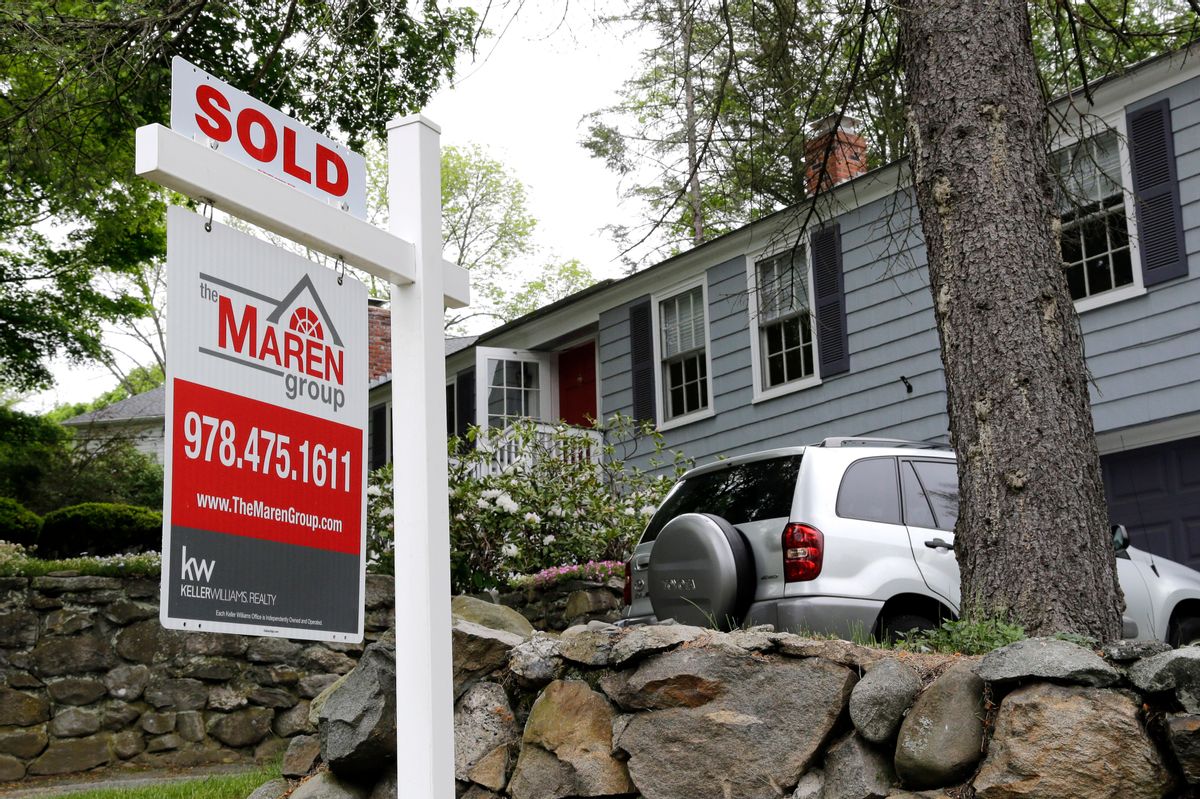An affordable housing crisis is growing across America, as home ownership prices keep growing at a pace unmatched by incomes and new construction. But disparities in home costs vary greatly, with progressive coastal epicenters being the priciest, while inland metropolitan areas have houses at a fraction of that cost.

“As you likely know from your own income, overall wage gains continue to be muted, rising at about a 2.5 percent annual rate, so the ability of a potential homebuyer to keep up is increasingly difficult, if not impossible,” said a report from HSH.com on salaries needed to buy a home in the 50 largest metro areas. “Just to keep pace with rising prices, year-over-year income gains needed to be in excess of 10 percent in about one third of all metros (plus more than 9 percent in another nine).”
The country’s most expensive metropolitan area in 2017’s third quarter was San Jose, California, the epicenter of Silicon Valley south of San Francisco, which was the second most expensive market. Their median home prices were, respectively, $1,165,000 and $900,000 — both of which had slightly declined from the second quarter of 2017. The salaries needed for what realtors call PITI — principal, interest, property taxes and insurance — were $216,181 in San Jose and $171,300 in San Francisco.
The five most expensive housing markets are on the west coast. Number three is San Diego, where the median home price is $607,000, which requires an $116,200 salary, HSH.com said. Fourth is Los Angeles, where the median home value is $595,000, which requires a salary of $115,069. Fifth is Seattle, where homes average $478,500, requiring a $93,418 salary. That's followed by Boston ($464,100; $97,465 salary), New York City ($419,100; $99,151 salary); Denver ($418,100; $79,458 salary), Washington, D.C. ($408,500; $84,503 salary) and Portland, Oregon ($389,400; $76,883 salary).
These mortgage costs do not include state or federal income taxes, contributing to savings plans, educational, or other household expenses. They are based on 30-year fixed mortgages with 4.01 percent interest rates. (The rates in the top four California metro areas are 4.12 percent.) In other words, one arguably needs to be making even more money to be able to cover all these expenses.
“Amid tight markets with little new supply, housing affordability continues to be a spreading problem,” HSH said. “This remains the case even though the median price of homes sold in the third quarter of 2017 compared against the second quarter was actually lower in 29 of the 50 markets we reviewed.”
So what can average Americans afford? Between 2015 and 2016, the median household income rose 3.2 percent, from $57,230 to $59,039, according to U.S. Census Bureau figures released in September. While median figures are, at best, a benchmark, as incomes vary as much as housing prices change in localized pockets, the answer to that question is somewhat sobering.
It’s not Chicago, where the Q3 median home price is $255,600, requiring a salary of $62,731. Nor pricier Austin, Texas, where the home price is $296,400, requiring a salary of $67,440. Nor is it Miami, where the home price is $340,000, requiring a salary of $71,798.
Instead, the metro areas median home prices are equal or slightly lower than the median household income are: Baltimore ($270,000 home price, requiring a salary of $59,034); Las Vegas ($261,600 home price; $50,728 salary); Richmond, Virginia ($258,900 price; $52,111 salary); Minneapolis ($257,000 price; $56,245 salary); Dallas ($249,000 home price; $59,517 salary); Milwaukee ($246,000 price; $56,927 salary) and Jacksonville, Florida ($232,000 price; $51,020 salary).
Other metro areas in this price range are Virginia Beach, Tampa, San Antonio, Salt Lake City, Raleigh, Philadelphia, Phoenix, Orlando, Nashville, Houston, Hartford and Charlotte.
The U.S. metro areas where median home prices are under $200,000 are: Birmingham ($198,700, requiring a $40,095 salary for a 30-year mortgage); Kansas City ($197,800); Columbus ($193,900); Detroit ($183,040); St. Louis ($176,500); Louisville ($175,700); Indianapolis ($173,700); Memphis ($172,700); Cincinnati ($169,100); Oklahoma City ($158,800); Buffalo ($151,600); Cleveland ($146,000) and Pittsburgh ($146,000).
Hovering just around the $200,000 threshold is Atlanta, where the Q3 median home price is $204,300, requiring a $43,388 income for a 30-year mortgage. The Q3 price in New Orleans is also $2014,300, but owing to different taxes and insurance costs, it requires an annual salary of $44,131 for a 30-year mortgage.
If you want to see what your monthly salary can afford for fixed 30-year loans, look at the chart below in the PITI column on the right. This payment does not include state and local non-property taxes, any savings plan, educational expenses, car payments or any emergency — let alone the inevitable costs of unplanned repairs. (Source: hsh.com)

Main article photograph by Shutterstock, Copyright (c) Andy Dean Photography.


Shares